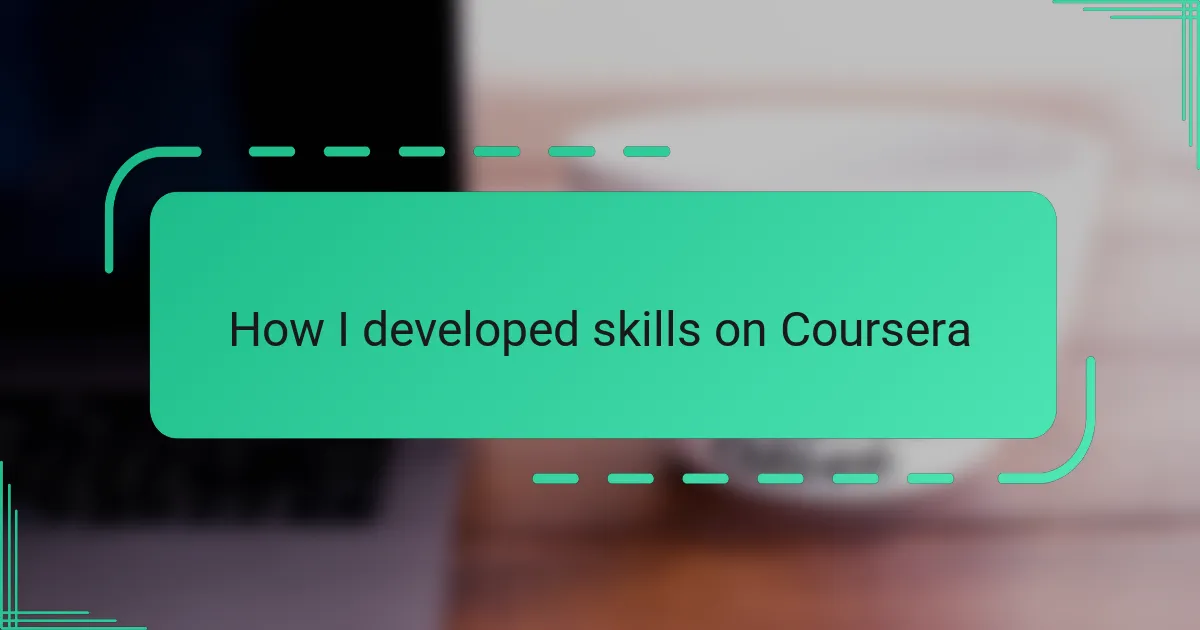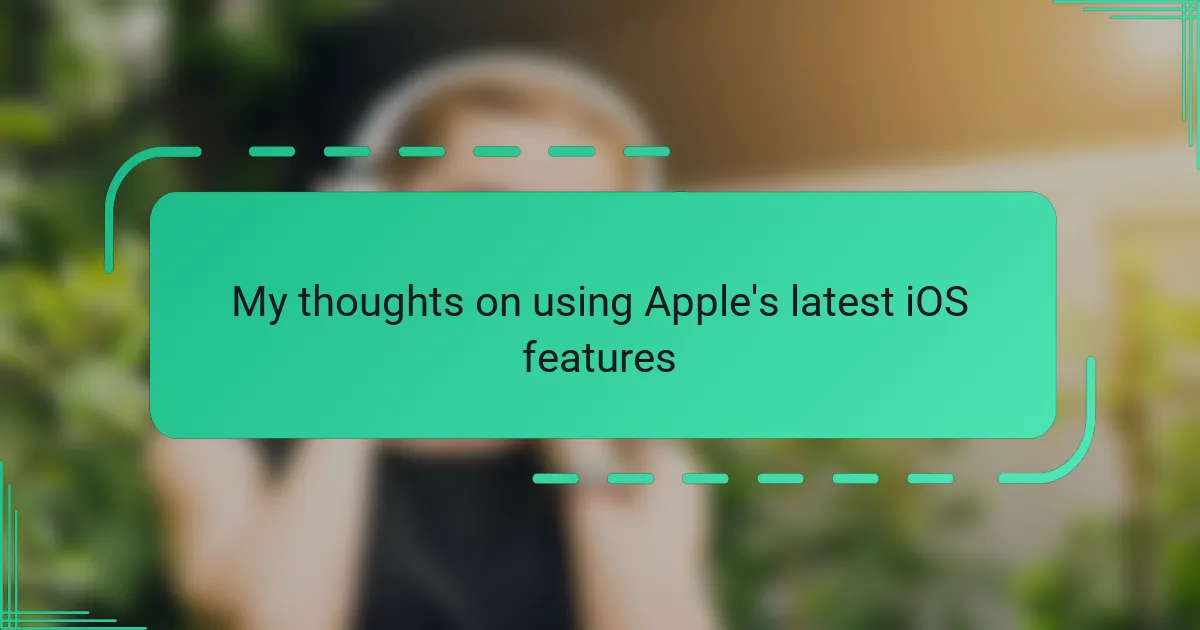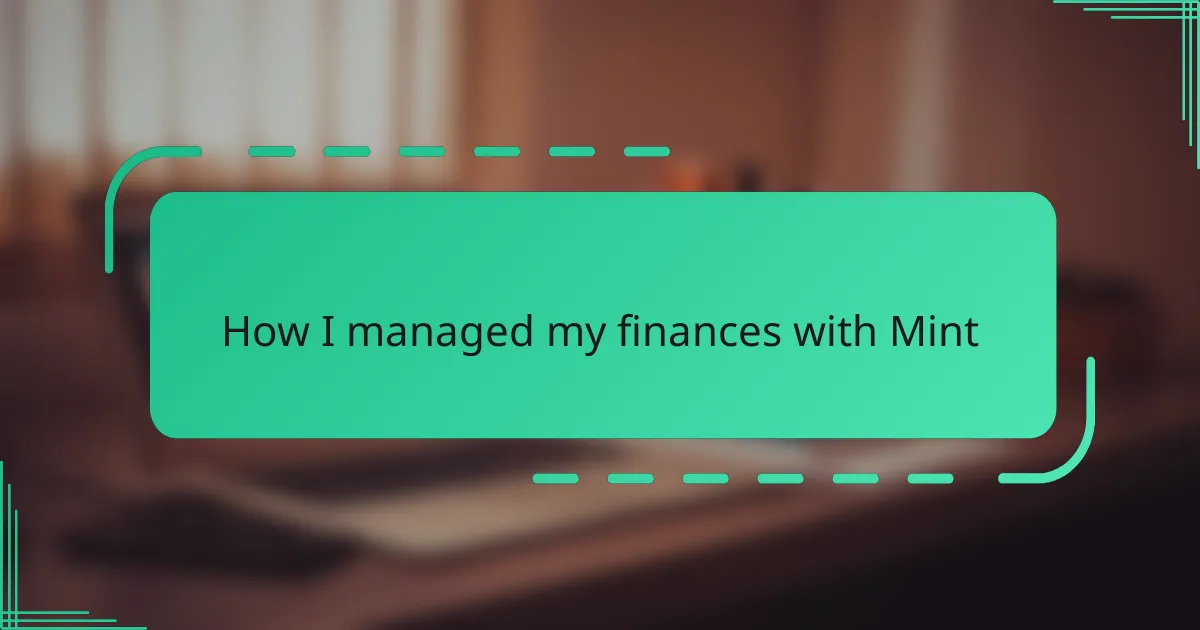Key takeaways
- Online learning platforms like Coursera provide flexibility and personalization, allowing learners to study at their own pace and choose courses that match their career goals.
- Engaging with course communities and utilizing active note-taking enhance the learning experience, making it more interactive and enriching.
- Applying skills gained through Coursera to real-world projects can boost confidence and improve teamwork and problem-solving abilities.
- Continuous skill development thrives on consistency, a growth mindset, and diversifying learning methods to maintain motivation and avoid burnout.
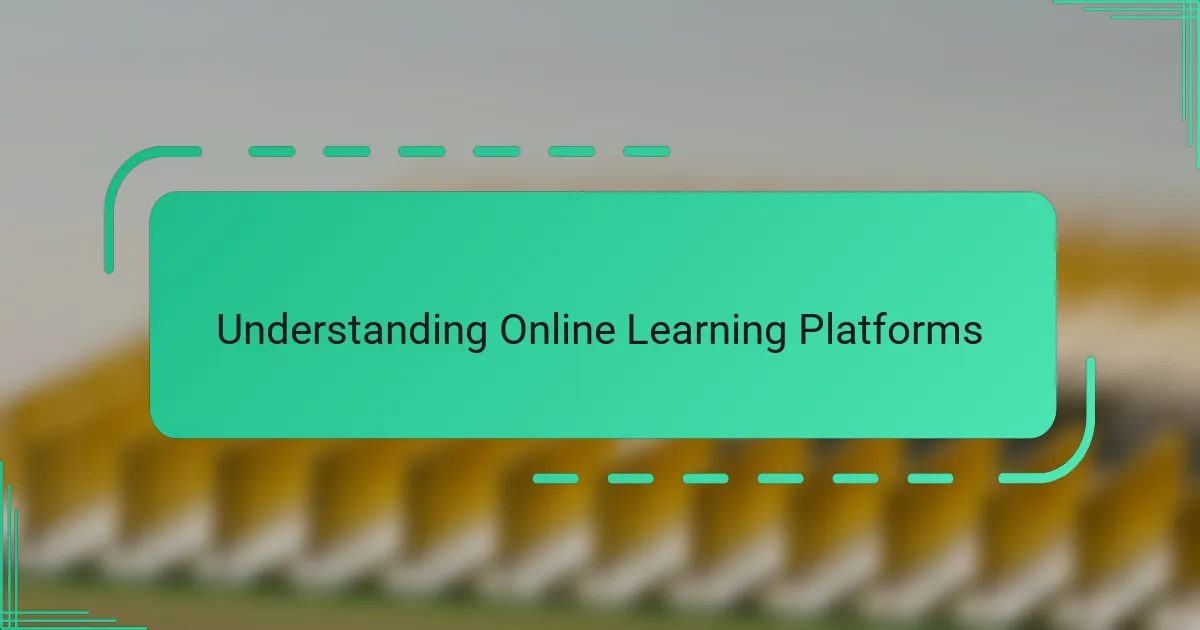
Understanding Online Learning Platforms
Online learning platforms like Coursera have transformed how we acquire new skills. I remember the first time I logged in; it felt overwhelming yet exciting to have thousands of courses at my fingertips. Have you ever wondered how technology can personalize education to fit your pace and style?
What stood out to me is how these platforms blend video lectures, quizzes, and peer discussions, creating an interactive learning experience. This combination made me feel more engaged and accountable, unlike traditional textbooks that often felt dry. It’s like having a mentor guiding you anytime, anywhere.
Understanding the structure behind these platforms helped me tailor my learning journey. Instead of randomly picking courses, I learned to set goals and choose programs that aligned with my career growth. This strategic approach turned learning from a task into an enjoyable challenge.
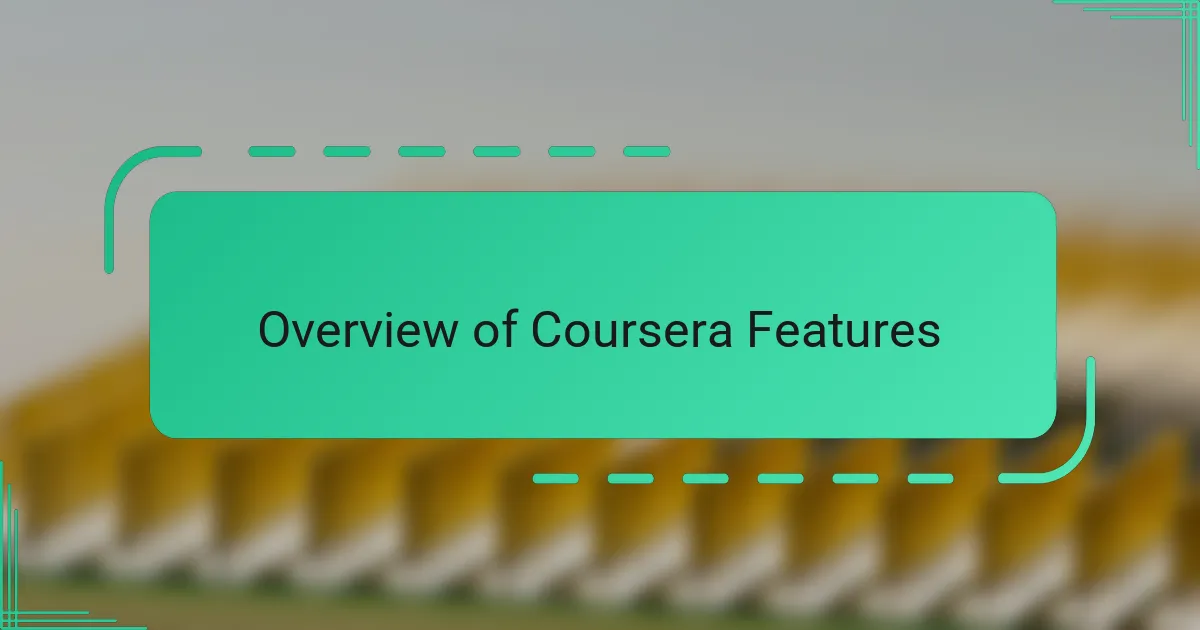
Overview of Coursera Features
One feature of Coursera that caught my attention right away is the vast range of course options from top universities and companies. It felt empowering to explore topics I never thought I’d have access to, like artificial intelligence and cloud computing, all in one place. Have you ever been surprised by how easy it is to find expert-led courses that perfectly match your interests?
What really made a difference for me was Coursera’s flexible learning schedule. Being able to pause, rewind, or speed up video lectures meant I could learn at my own pace without feeling pressured. This freedom changed how I approached studying—I wasn’t tied to rigid deadlines but still stayed motivated by regular quizzes and assignments.
The platform’s community features also stood out as a huge plus. Engaging in discussion forums and peer reviews gave me a sense of connection and real-time feedback, which made learning feel less isolating. I found myself excited to share ideas and hear different perspectives, turning study sessions into collaborative experiences rather than solo efforts.
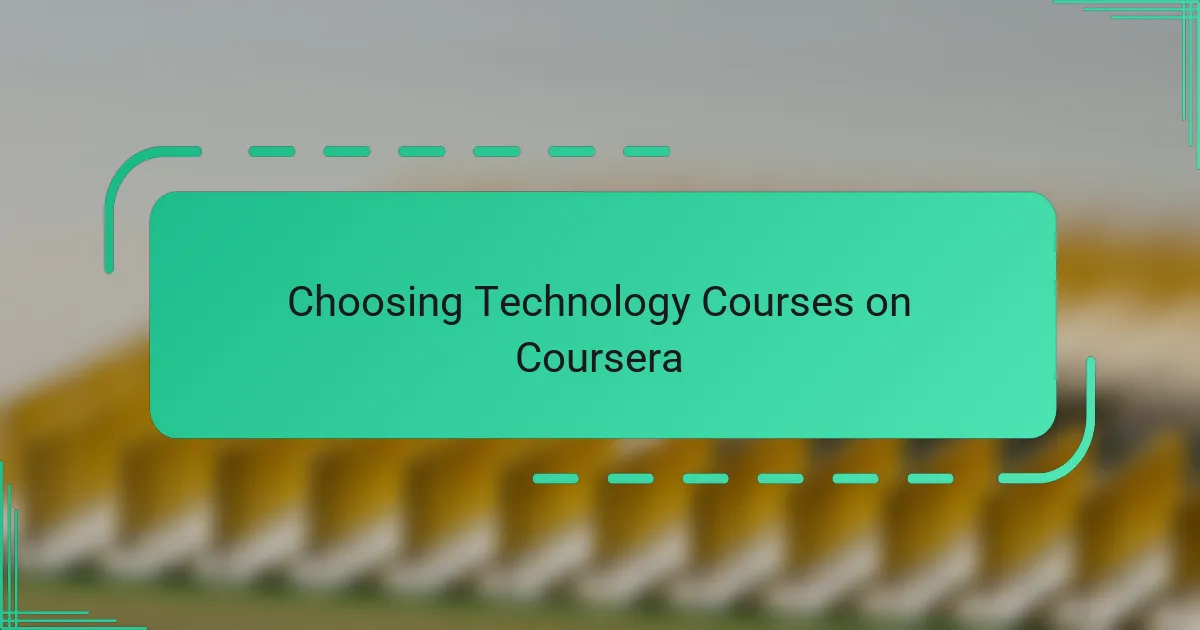
Choosing Technology Courses on Coursera
Choosing technology courses on Coursera felt like stepping into a vast marketplace of knowledge where the hardest part was narrowing down my options. I asked myself, which skills would truly advance my career? This question guided me to focus on courses that balanced foundational concepts with current industry trends.
I learned to lean heavily on course reviews and syllabus previews before committing. Reading about other learners’ experiences gave me a clearer picture of what to expect and saved me a lot of time and frustration. Have you ever signed up for something only to realize it wasn’t what you expected? That’s where these insights made a difference.
Another trick that worked for me was aligning courses with my daily routine and energy levels. I chose shorter modules for busy days and more intensive deep-dives when I could fully focus. This approach made learning feel manageable rather than overwhelming, turning my tech education into a steady, enjoyable journey.
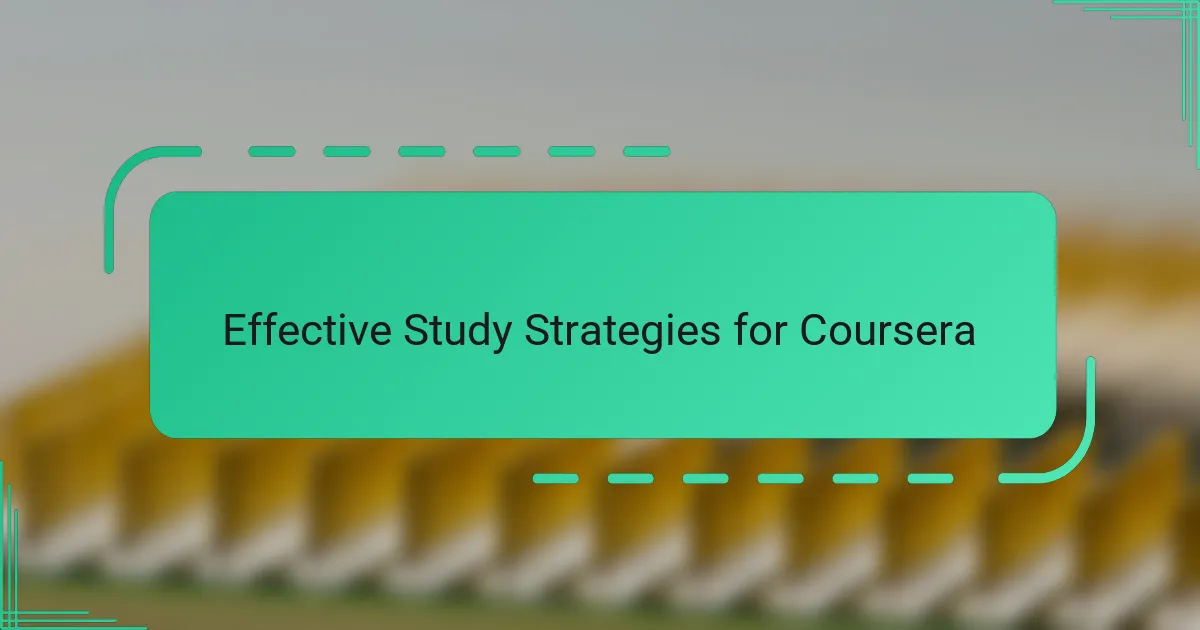
Effective Study Strategies for Coursera
Finding the right study rhythm on Coursera was a game changer for me. I quickly realized that treating online learning like a traditional classroom wouldn’t work; instead, breaking lessons into bite-sized chunks helped me stay focused. Have you ever tried setting specific time slots for studying? That little structure made me less likely to procrastinate and more eager to dive back in.
Another strategy I found vital was active note-taking during video lectures. It felt tempting to just watch passively, but jotting down key points kept my mind sharp and made reviewing easier later on. Plus, summarizing content in my own words deepened my understanding more than I expected.
Engaging with course communities also played a big role in sustaining my motivation. When I shared questions or insights, I realized I wasn’t learning in isolation. Have you noticed how discussing ideas with peers can turn a solitary study session into a lively exchange that sparks new thoughts? For me, those interactions made the learning experience richer and much more rewarding.
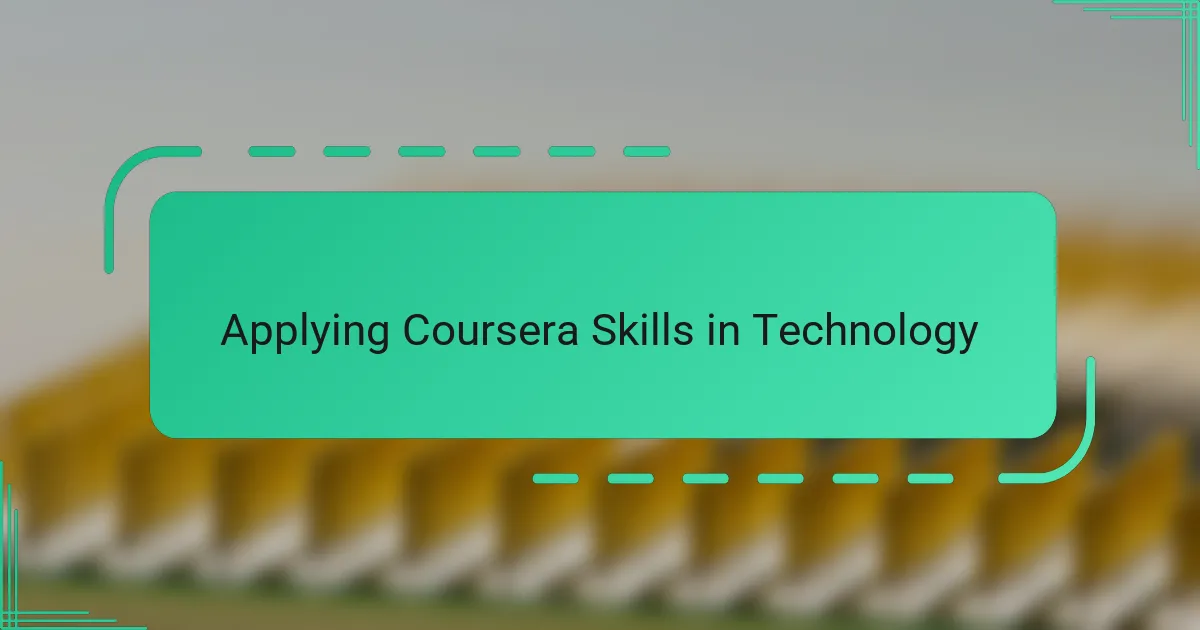
Applying Coursera Skills in Technology
Applying the skills I gained on Coursera directly to real-world technology projects was both thrilling and challenging. For instance, after completing a course on cloud computing, I felt confident enough to deploy a simple app on AWS, something I never imagined doing before. Have you ever experienced that moment when a concept clicks, and you realize you can actually build something tangible?
What struck me most was how these Coursera skills translated into smoother teamwork and problem-solving at work. Learning frameworks like Agile and DevOps not only improved my technical toolkit but also changed how I communicated with engineers and managers. It made me wonder—how much more effective could our tech projects be if everyone took a few targeted courses like these?
Sometimes, applying new knowledge meant revisiting basic concepts to fill gaps I hadn’t noticed. That’s the beauty of technology: it demands continual learning, and Coursera made that cycle manageable. I found myself returning to select lectures just to refresh certain skills before tackling complex tasks. Isn’t it reassuring to have such a flexible resource at your fingertips when work demands push your limits?
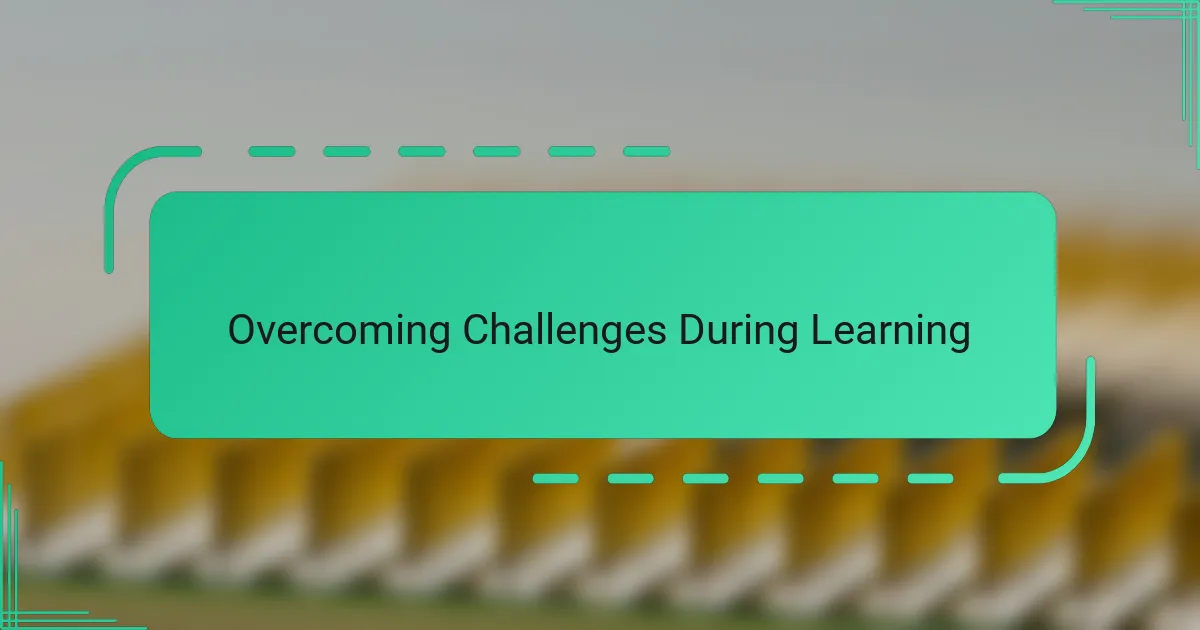
Overcoming Challenges During Learning
There were moments when juggling work, family, and Coursera felt like an uphill battle. I remember one evening, exhausted and ready to quit, but pushing through that fatigue taught me resilience—a skill just as important as any technical concept I learned. Have you ever surprised yourself by sticking with something tougher than you expected?
Technical jargon initially felt like a wall I couldn’t climb. At first, I struggled to understand terms that experts use casually. But breaking down complex ideas into everyday language, sometimes revisiting the material multiple times, made those topics click. It was like learning a new language, one small word at a time.
When deadlines loomed, procrastination sneaked in more than once. To counter this, I started setting mini-goals and rewarding myself after completing each module. This small shift turned a daunting mountain into manageable stepping stones. Do you find that little wins boost your motivation too? For me, they made all the difference in staying on track.
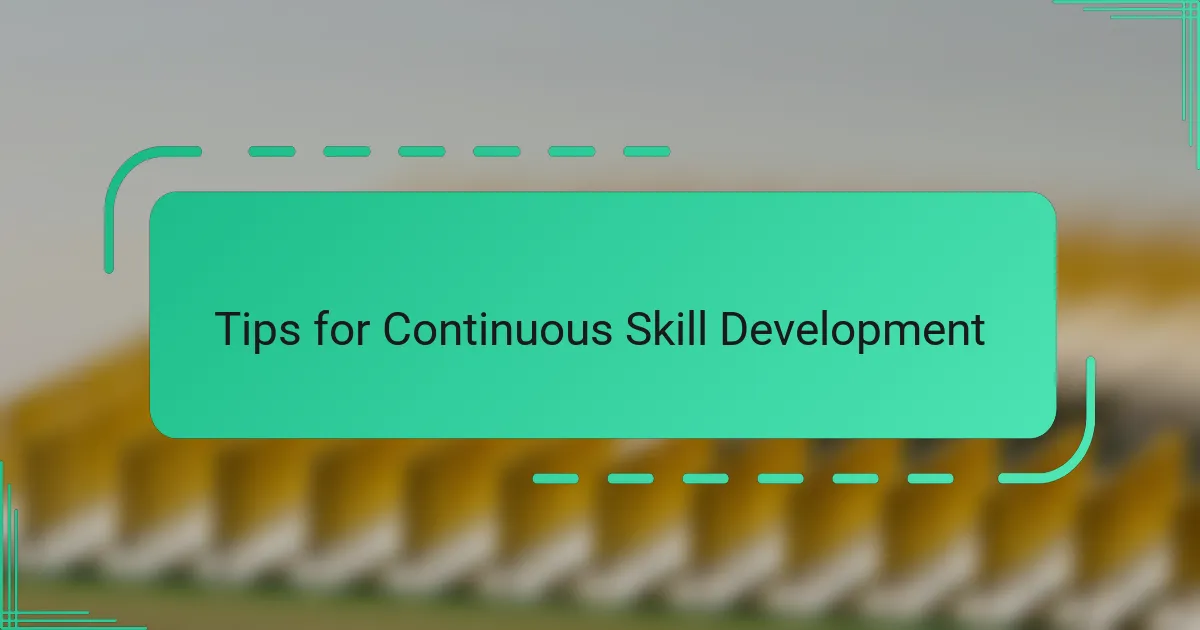
Tips for Continuous Skill Development
One thing I’ve learned is that continuous skill development demands consistency more than intensity. I found setting aside even just 15 minutes a day for learning helped keep my momentum alive. Have you noticed how small daily habits add up over time? For me, those tiny chunks became a steady river of progress rather than a sporadic flood.
Another tip that really changed my approach was embracing a growth mindset—seeing challenges not as roadblocks but as opportunities to learn. When a concept didn’t click immediately, I reminded myself that persistence was part of the process. Don’t you think patience with yourself can be as important as the content you’re studying?
Finally, mixing up learning methods kept things fresh and engaging. Sometimes I’d watch lectures, other times dive into hands-on projects or join discussions. Switching gears helped me avoid burnout and deepened my understanding. Have you ever found that variety sparks new motivation and insights during your learning journey? I certainly have.
